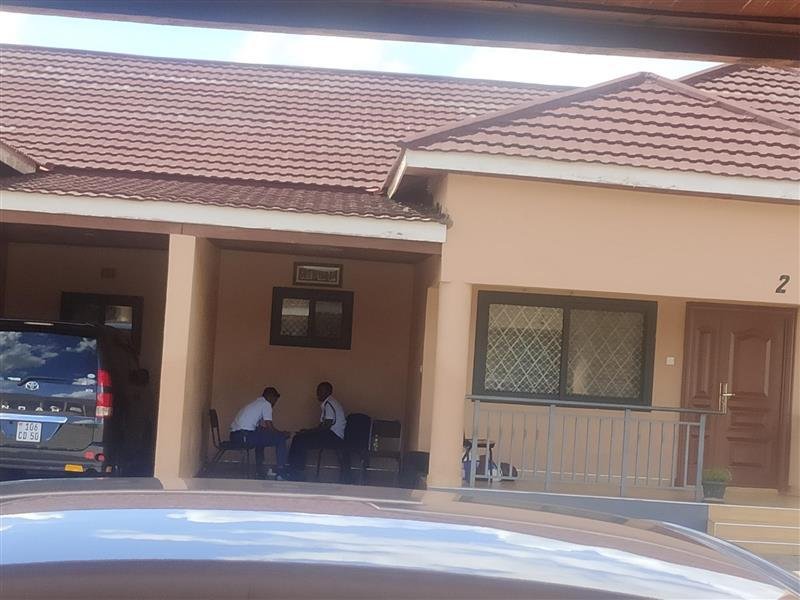Techno Brain Files For Release Of Employee Held Hostage By Malawian Government
The technology company Techno Brain yesterday evening filed a writ of habeas corpus with the high court, criminal division, in Lilongwe calling for the release of one of their employees from what they describe as his illegal detention by government officials.
Prakash Naidu, an Indian national and technical engineer at Techno Brain, has been held without charge at a company guesthouse in Lilongwe since 15:00 on Saturday. Images show six officers from the Department of Immigration and Citizenship Services (DICS) present at the house. Techno Brain argues that Mr Naidu’s detention effectively results in an illegal house arrest.
The Dubai-based company has been embroiled in a dispute with the Malawian government over a $60.8 million contract for Techno Brain to upgrade the country’s passport issuance system and deliver 800,000 electronic passports over a period of three years.
DICS officers posted outside the Techno Brain guesthouse in Lilongwe
Last month, Malawi’s Attorney General Thabo Chakaka Nyirenda cancelled the government’s contract after accusing Techno Brain of not following due process and overcharging the government for the cost of passports.
Techno Brain have categorically denied any wrongdoing and, in a statement published last week, explained that the costs under the contract reflected the enormous investment the company was pouring into Malawi’s passport issuance system, including the training of 125 DICS officers to digitise over one million records and roll them out to 19 embassies around the world. The firm described the contract as a “win-win” for Malawi, with Techno Brain delivering a high-quality passport issuance system while also employing and training local staff.
On Friday, the government issued a notice demanding that Techno Brain hand over all its intellectual property related to the contract, in particular the data centre, by the following evening. As Techno Brain sought to engage the government on the matter, DICS agents apprehended Mr Naidu.
Attorney General Thabo Chakaka Nyirenda
The case threatens to significantly undermine investor confidence in Malawi, as well as paint the government in an autocratic light. Critics suggest the government is trying to blame Techno Brain for the government’s failure to honour a manifesto promise to reduce the costs of passports to $17. They also raise eyebrows over the government’s aggressive public messaging compared to more conciliatory private negotiations.
A letter from the DICS recalled that at a meeting on 24 November, the government agreed to pay Techno Brain the outstanding $23 million it owed, as well as to consider the possibility of extending the company’s contract.
More shockingly still, the letter pledged that “for the remaining portion of the contract the Ministry of Justice and Department of Immigration will engage TBG [Techno Brain Group] to agree on amicable terms to smoothy implement the project”.
The subsequent volte face by Attorney General Chakaka Nyirenda the following month, coupled with the government’s rash decision to detain a Techno Brain employee presents an administration that has fundamentally lost control. It also begs the question of how a foreign investor like Techno Brain is expected to complete its contract with any success in such a toxic business environment.


